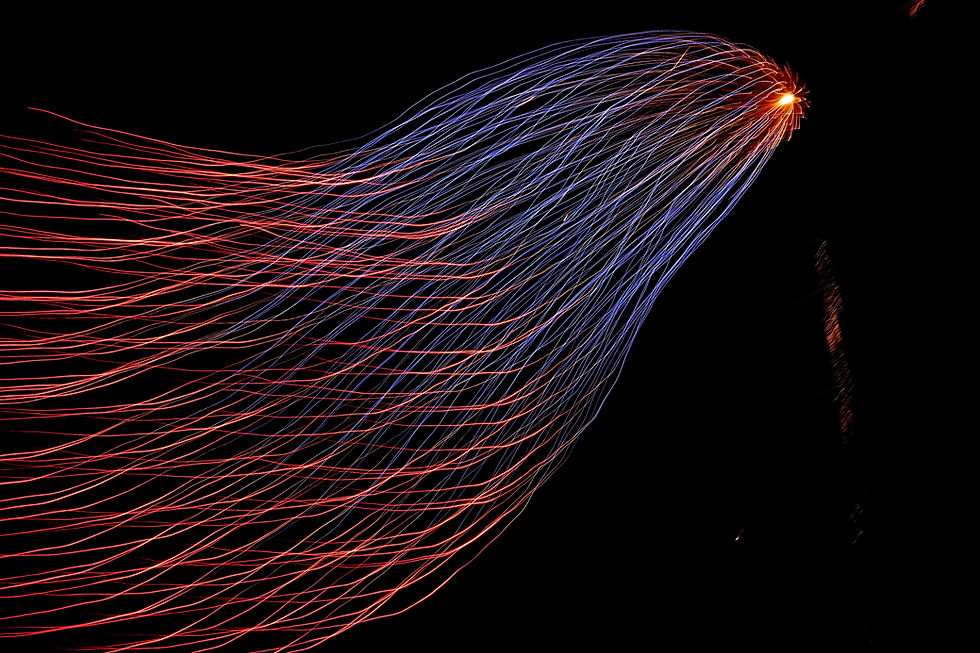A coach's view on why it is time to ban "New Year, New You"
- Client Talk

- Jan 10, 2024
- 4 min read
As I write this many of you will be struggling with maintaining [dry January, Veganuary, New Year Resolution to…..] – amend as appropriate! Many of us buy into the “New Year, New You” mantra that gets thrown around this time of year. Usually by Gym companies, organisations touting diets, and supermarket chains looking to maintain their previous month’s sales. As a coach that works with individuals and teams on change, I am going to let you know why I believe it is time we ban “New Year, New You” for good.
What is wrong with wanting to change?
Coaches work on transformation and change. It might therefore seem odd that I am writing an article about why you shouldn’t buy into a great milestone to do just that. Here’s the thing. The motivation to overhaul our lives in January is usually external and the goals that we set are usually unrealistic. That in turn leads to failure, which in turn leads to a spiral of negative thinking that we aren’t [good enough, able to change, ever going to make a New Year’s Resolution again….] – amend as appropriate!
“New Year, New You” also suggests that we need to radically change to be what society, or those around us, want us to be. Just no! Our coaches don’t work to transform personalities, we work to explore behaviours. It isn’t about creating a new you, it is about understanding who you are and understanding the impact (good and bad) that might have. We also think about how clients can expand their way of being, experimenting and learning through behavioural experiments. There are no personality transplants here.
Focus on behaviour not on who you are
We are all different. We are all a product of our environment, the culture in which we grew up, amongst other things. Gestalt psychology (something that we love!) describes and works with the idea that our behaviour coexists only within our life space - the environmental, biological, social, and psychological influences that define one person's unique reality at a given moment in time. This is another reason why New Year, New You, falls short, there is no context (other than that the day has changed).
Rather than thinking about changing into someone else this New Year, start with an exploration of who you are. What makes you special? What are your values and your drivers? What are your strengths? Learn to listen to your inner voice and learn from it. Think about your life space and how that has shaped you and continues to shape you.
Maybe your New Year’s Resolution is to lose weight (to create a new, thinner, happier you). The focus here is on “thin me, who will be happier.” There is a lot to unpack here. However, what this doesn’t do is think about the behaviours that sit behind the desired change. Maybe you go for the chocolate (or wine) at the end of the day to unwind. What is it about that behaviour that you could experiment with? Maybe you have a tough job and feel like you need a reward. What other ways could you reward yourself? When you explore that, you are much more likely to be able to experiment and in turn feel able to adapt and change, without turning into someone else.
Work out your drivers
There are two different ways that we can be driven to behave. One is as a result of external forces, such as things we might do at work because if we don’t we might not get paid. The other is intrinsic, where we engage in behaviours that are rewarding for their own sake.
“Intrinsic motivation is defined as the doing of an activity for its inherent satisfaction rather than for some separable consequence. When intrinsically motivated, a person is moved to act for the fun or challenge entailed rather than because of external products, pressures, or rewards….
Extrinsic motivation is a construct that pertains whenever an activity is done in order to attain some separable outcome. Extrinsic motivation thus contrasts with intrinsic motivation, which refers to doing an activity simply for the enjoyment of the activity itself, rather than its instrumental value.”
Ryan and Deci (2000)
Self Determination Theory (a person's ability to make choices and manage their own life) is central to coaching. SDT proposes that there are different types of extrinsic motivation – these exist on a spectrum.
Intrinsic motivation supports psychological needs for competence and autonomy and therefore is self-determining. External motivators vary in the extent to which they are self-determining. All of this can be explored and understood to support change. An understanding of drivers – and self-determination – can help individuals adopt new or different behaviours at a deeper level than “New year, New You”.
This New Year, ditch the Resolutions, and instead think about taking some time to understand who you are. Self-awareness is at the heart of coaching, emotional intelligence, and making the small changes that will transform your way of being in the long run. If you want to find out how coaching might help you, get in touch.





Comments